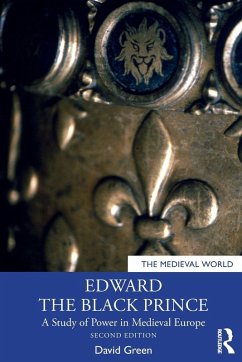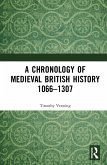This fully updated second edition uses the career of Edward the Black Prince to explore key developments in the history of late medieval Europe.
The eruption of the Hundred Years War, the arrival of the Black Death, England's first religious heresy, and major innovations in the role of parliament all took place during Edward's lifetime. As king-in-waiting and one of the most significant noblemen in the realm, the prince was a major influence over local and international politics, and his example helped reshape concepts of lordship throughout the Plantagenet estates. This thoroughly revised edition includes new sources and builds on the wealth of scholarship which has been published in recent years about the fourteenth century. It includes considerations of the prince's military career in France and Iberia, his household and the 'colonial' characteristics of his administrations in Wales and Aquitaine. The prince's career also reveals the influence of the chivalric ethicand the importance of Gascony to the English crown, while his relationship with Joan, 'the Fair Maid' of Kent is suggestive of the changing character of female agency in the later middle ages.
Drawing on central themes such as plague, chivalry, lordship, parliament, gender, and religion, Edward the Black Prince is essential reading for all students and scholars concerned with society, culture, and power in medieval Europe.
The eruption of the Hundred Years War, the arrival of the Black Death, England's first religious heresy, and major innovations in the role of parliament all took place during Edward's lifetime. As king-in-waiting and one of the most significant noblemen in the realm, the prince was a major influence over local and international politics, and his example helped reshape concepts of lordship throughout the Plantagenet estates. This thoroughly revised edition includes new sources and builds on the wealth of scholarship which has been published in recent years about the fourteenth century. It includes considerations of the prince's military career in France and Iberia, his household and the 'colonial' characteristics of his administrations in Wales and Aquitaine. The prince's career also reveals the influence of the chivalric ethicand the importance of Gascony to the English crown, while his relationship with Joan, 'the Fair Maid' of Kent is suggestive of the changing character of female agency in the later middle ages.
Drawing on central themes such as plague, chivalry, lordship, parliament, gender, and religion, Edward the Black Prince is essential reading for all students and scholars concerned with society, culture, and power in medieval Europe.









